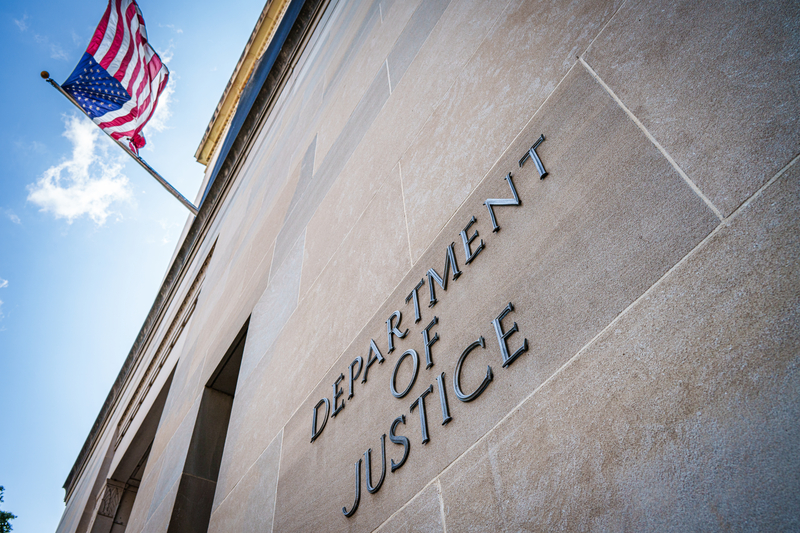The landmark antitrust trial between the US Justice Department (DOJ) and Google ended its first week of testimony on Friday, with both sides presenting their initial arguments centered on the company’s dominance of internet search.
But that’s not the headline here.
As the case has unfolded, another allegation of misconduct has emerged; namely, that company employees regularly used an internal chat system set to auto-delete messages, both before and during its litigation with the DOJ.
Employees were trained to “Communicate With Care,” use the “off the record” chats when discussing business related to litigation, and be mindful of the legal implications of what they wrote, according to court filings in the DC district court, as well as a separate federal case in California against Google, Bloomberg reports.
“For years, Google employees intentionally steered conversations away from email and toward chats, sometimes explicitly requesting that the history remain off.”
DOJ attorneys in their motion filed in February
Communications allegedly deleted
In February, the DOJ filed a motion asking for sanctions over the deleted messages, and Judge Amit P Mehta, who is presiding over the trial now, has not yet ruled on it. The DOJ’s attorneys in its antitrust division may seek to use these details and try to infer at trial that such deletions hid damaging information that undermine Google’s defenses, instead of seeking sanctions for the conduct. Since this is not a jury trial, Judge Mehta can put off the decision over the motion, since the evidence is not being turned over to a jury to review.
“For years, Google employees intentionally steered conversations away from email and toward chats, sometimes explicitly requesting that the history remain off,” Justice Department lawyers said in the February motion filed with the court. By intentionally destroying employee chats and making repeated misleading disclosures to the United States, Google violated federal rules on litigation, the DOJ said.
“It would be fair to describe this motion as a sword of Damocles … It could be extremely damaging to Google’s case.”
Katherine Van Dyck, senior legal counsel, American Economic Liberties Project
A Google spokesperson responded to Bloomberg’s inquiries about the allegations by saying the company has been diligent about government requests for information. “Our teams have conscientiously worked, for years, to respond to plaintiffs’ discovery requests and we have produced over four million documents, including thousands of chats,” the spokesperson said in an emailed statement.
In filings, the company argued the auto-deleted chats contained no substantive communications, and that it took steps to preserve more sensitive messages.
Anti-monopoly advocacy
“It would be fair to describe this motion as a sword of Damocles,” said Katherine Van Dyck, senior legal counsel at the American Economic Liberties Project, an anti-monopoly advocacy group. “It could be extremely damaging to Google’s case” if Mehta decides against the company on the sanctions motion, she said to Bloomberg.
Questions about the alleged auto-delete function and who instructed employees to leave it turned on are relevant for the DOJ’s broader case, potentially helping it illustrate the company’s state of mind, said Christine Bartholomew, a professor at the University at Buffalo School of Law who specializes in antitrust and evidence.
Prosecutors hope to show what was being discussed about Google’s search engine contracts – whether and how they were discussed in emails, face to face, or via the chats – and whether emails turned into more informal chats over time and then possibly into a policy of deletion.
Government attorneys can also use the act of deletion to show how Google saw itself and its position as a potential monopolist, Bartholomew said. They can say, “How often did you talk about this? Oh, you did it by chat? Tell me about your chat,” Bartholomew said.
“From an evidentiary standpoint, that a conversation would go from email to chat has its own implications that you would want to highlight,” she added.
The prosecutorial tactic is not a perfect one, though, as it’s an attempt to show a state of mind, and proving what the deleted chats contained is nearly impossible. Plus, Judge Mehta previously sided with Google over the DOJ’s motion for sanctions over claims it hid evidence by having employees copy attorneys on sensitive emails, although he ordered the company to doublecheck it had fully complied with its discovery obligations.
“In effect, Google adopted a ‘don’t ask, don’t tell’ policy for chat preservation, at the expense of its preservation duties.”
Judge Donato, US District Court of the Northern District of California
Still, a federal court already found Google liable for message deletions back in March.
In that unrelated consumer antitrust case against the company, Judge James Donato of the US District Court for the Northern District of California ruled that chat destruction warranted sanctions because it was “intended to subvert the discovery process”.
“In effect, Google adopted a ‘don’t ask, don’t tell’ policy for chat preservation, at the expense of its preservation duties,” he said.
Donato declined to rule on the terms of the sanction itself, although he found it appropriate that Google pay attorneys’ fees and related costs the plaintiffs accrued in bringing the sanctions motion.
Lost data at crypto exchange
Last October, Google settled a dispute with the DOJ over its failure to comply with legal obligations relating to data held on a crypto exchange that was closed down for criminal activity. The settlement related to a search warrant served on Google in 2016 demanding the company hand over data relating to the crypto exchange BTC-e, which was the subject of a major criminal investigation over money-laundering and shut down in 2017.
The search giant agreed “to ensure timely and complete responses to legal process such as subpoenas and search warrants,” as required under the Stored Communications Act, and the agreement established what the DOJ termed “a first-of-its-kind Independent Compliance Professional” to be retained as an outside third party to monitor Google’s efforts in meeting its compliance obligations in the matter.
In the antitrust lawsuit, prosecutors allege that Google used restrictive contracts to secure its place as the default search engine on devices and in browsers.
As for the antitrust lawsuit itself, the DOJ and 17 states are bringing charges against the search giant, and the trial begins this Tuesday in the US District Court for the District of Columbia.
Prosecutors allege that Google used restrictive contracts to secure its place as the default search engine on devices and in browsers. It is considered the most consequential antitrust courtroom battle involving Big Tech since government enforcers took on Microsoft in the late 1990s.

















